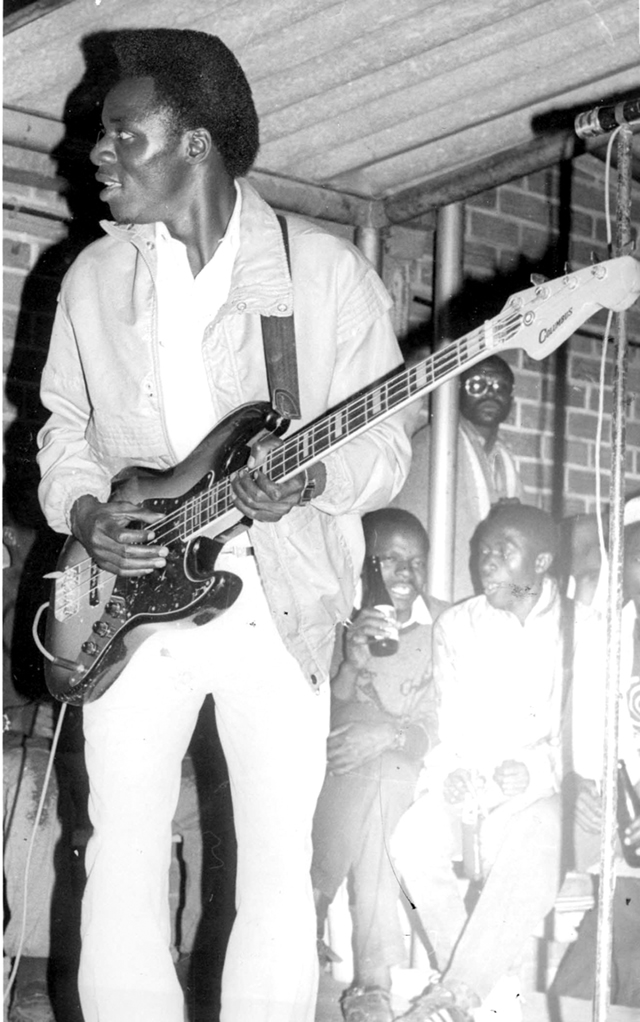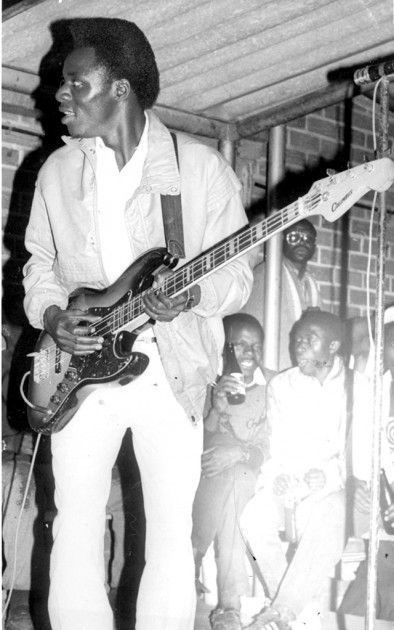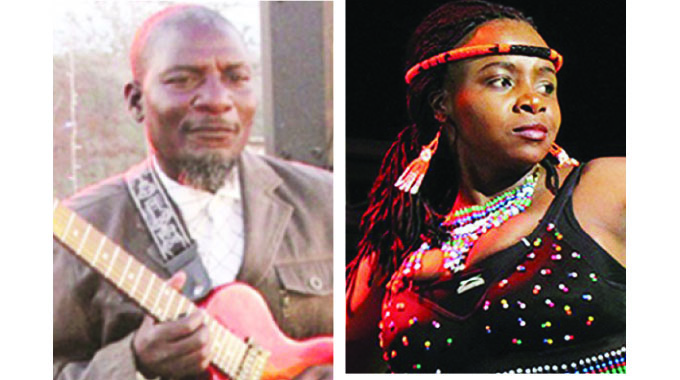Macheso’s journey of mixed fortunes

Godwin Muzari : Memory Lane
When Alick Macheso unveils his new album “Tsoka Dzerwendo” on Monday, he opens another chapter in the history of a career spanning almost four decades. It has been an eventful career, littered with tales of hard times and equally decorated with success stories that have made Macheso a formidable brand in sungura music and the arts industry at large.Because of a poor background that affected his academic pursuit, Macheso was strumming the guitar on stage at the age of 15.
He risked being kicked out of bars where he was playing because he was under 18 and had a hard time to convince authorities everywhere he went that he had a reason to be among adults deep in the night in nightspots that were not healthy for his age.
In a chat with Memory Lane on Wednesday evening at his house in Waterfalls, Macheso recalled how their manager then, Shakespeare Mangwende, would struggle to convince security personnel at beerhalls that the young boy was a member of Khiama Boys.
Every time Macheso was warned that he could be kicked out of a show anytime because it was illegal for him to be there. The band had to have a standby guitarist in case the law caught up with their young bass guitarist.
But he was talented and they needed him. And Macheso had to soldier on because this was his new profession and he had to make a living out of it, as young as he was.
“There was a time when we were in Kwekwe and Mangwende had to smuggle me into the show because authorities at the venue could not allow such a young boy into their place. The situation was worsened by my stature. I had a small body and looked even younger than 15,” Macheso recalled.
“Mangwende brought me into the show through the back door and I had to hide in the changing room until it was time to go on stage. When I went on stage, there was uproar and people did not believe I was the one playing the guitar.
“Fans even requested that all the other instruments be stopped to prove that I was actually playing the guitar. They initially thought it was a gimmick and someone backstage could be playing the bass guitar. I convinced them and they were amazed. Even the authorities at the venue did not kick me out. They just marvelled as I played on. That was how this journey began. It has been a long meandering route and I have seen a lot.”
As he grew up in Khiama Boys, Macheso toured various places with the band. Their first days were not rosy and they had to endure many unfortunate incidents. It was even harder for a young boy who had just come from a farm and still learning the ways of the industry.
“There are times when we could spend about a month touring various places in the country and return to Harare empty-handed because of mixed fortunes during the shows. It was a painful experience.”
Khiama Boys had to spend most of their time touring rural areas, farms and mines since Harare was a hot spot with tough competition from the likes of Leonard Dembo, Thomas Mapfumo, Oliver Mtukudzi, James Chimombe, Four Brothers and Safirio Madzikatire among others.
“My mother tried to dissuade me from the career because she felt I was labouring for nothing. I had nothing else to do and music was my passion so I had to soldier on.
“When I got married in 1986, life was tough. My wife was strong and she had to face the harsh realities. We were lodging a room in Epworth and paying $2 (Zimbabwean dollars) per month and we only had two pots and a few plates. My first daughter, Sharon, was born under such conditions. My mother had to take my wife and baby to stay with them in Shamva because she felt I would starve them. They lived there for about a year while I toiled in the music wilderness to raise a few dollars to support them.”
However, the arrival of Sharon on this world apparently brought good fortunes.
In 1987 Khiama Boys released a smash hit, “Mabhauwa”, that was written by Cephas Karushanga with System Tazvida doing lead vocals. The hit opened floodgates for Khiama Boys and attendance to their shows improved. The success led to the split of Khiama Boys and, after the departure of other members, Macheso became Nicholas Zakaria’s sidekick.
Macheso was a rare backing vocalist and instrumentalist who made a name despite working under Zakaria.
Zakaria gave him an opportunity to do his own compositions that gave him confidence.
Khiama Boys went on to release good albums like “Kubva Kure”, “Zviri Mudzimba”, “Kutambura” “Kuva Nemari”, “Ndinemubvunzo” and “Mabvi Nemagokora”.
The good times saw Macheso and other band members relocating from Epworth to Chitungwiza where they got decent accommodation.
However, as the group continued to rise on the music ladder, Zakaria made an unexpected decision to take a job as a truck driver and the group fell on hard times again.
“I do not know why he made that decision but we respected his interests. He promised to come back every weekend for shows but he was overwhelmed by the workload and we could not do any shows. We spent about a year inactive and life was getting back to the tough times.
“In 1997 I told him about my decision to form a band and he allowed me to proceed. I did not have resources to start the new group and I would walk all the way from Chitungwiza to Msasa to record my first album, “Magariro”, at Gramma Records.
“It was fortunate that officials at Gramma Records understood my plight and had faith in me.
“The likes of Bothwell Nyamhondera, Tymon Mabaleka and Emmanuel Vori convinced their management that my music was good and it would sell. They negotiated for a loan on my behalf and I was relieved. I was paid before the album was released.
“I bought my first set of music equipment and other band members from Khiama Boys joined me and key among them was Zakaria Zakaria. That was the birth of Orchestra Mberikwazvo. The band had Gift Putazi, Donald Gogo, Thomas Dasinto, Rogers Fatia, Charles Chembe and Jabulani Chimiti.
“We began live shows and the album ‘Magariro’ was an instant hit. Lady fortune had smiled on us once again. Orchestra Mberikwazvo’s journey began on a smooth flow and the album ‘Simbaradzo’ made history for us. We became one of the best bands and subsequent releases pushed our brand higher. New band members joined us and the name grew bigger.”
Macheso began touring internationally with his band and he remembers how they outclassed South Africa’s Arthur Mafokate when they had a joint show in the United Kingdom in 2002.
They began touring the UK about twice a year and the trio of Thomson Chauke, Rogers Fatia and Samuel Mugede deserted the band when they remained in the UK during one of the tours.
“We had shows lined up on our return home and I had to act swiftly. I phoned guitarist Innocent Mujintu and drummer Musaope Nkoma while I was still in the UK and told them to prepare to join us at our shows.
“The first show was in Bulawayo and it went well. News had filtered that I had been deserted and most fans were surprised that the show was flawless.”
Band members have joined and left Orchestra Mberikwazvo, but Macheso remains determined to keep his brand ahead.
The other unfortunate desertion came when Jonasi Kasamba, Obert Gomba and Noel Nyazanda left the group to form Extra Kwazvose with Franco “Slomo” Dhaka who had quit Orchestra Mberikwazvo earlier.
Gomba and Kasamba have since rejoined the group while others are said to be on their way back.
Through albums like “Zvakanaka Zvakadaro”, “Zvido Zvenyu Kunyaya”, “Vapupuri Pupurai” and “Ndezvashe-eh” Macheso demonstrated he is on top of the rest in sungura.
Although his last album “Kwatakabva Mitunhu (Kure Kwekure)” did not perform as expected, Macheso believes it was a good release and he has confidence that the upcoming release “Tsoka Dzerwendo” will prove that he is still the king of sungura.








Comments